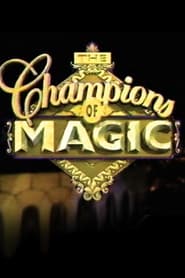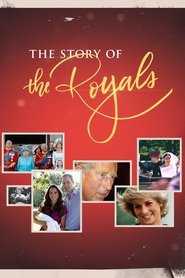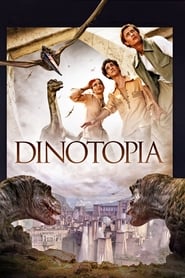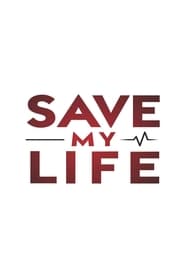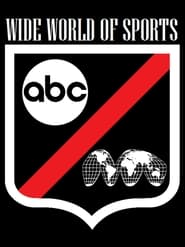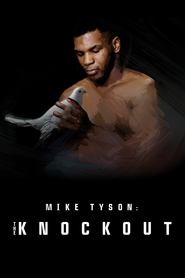Abc TV Series - Page 69
-
Turning Point
0000
Turning Point
0000
Turning Point is an ABC News program that aired from 1994 to 1999. Turning Point was an hour-long documentary program focused on a single topic, making it similar to CBS' 48 Hours, which it ran directly opposite for some of its run. The program tended toward sensational topics, such as former members of Charles Manson's "Family" and much coverage of the O. J. Simpson murder case, which was current for much of the program's run. ABC News figures appearing regularly on the program included Diane Sawyer, Forrest Sawyer, Meredith Vieira, Peter Jennings and Barbara Walters. This Turning Point is not to be confused with an ABC dramatic anthology series of the same title which ran during the 1952-53 television season. -
NY Med
2012
star 4Each episode toggles between the renowned surgeons of Manhattan's New York Presbyterian Hospital and the gritty world of trauma surgeons at Newark's University Hospital where the ER is a doorway to the mean streets of one of America's most violent cities. Sometimes poignant and often uproarious, this limited series takes a deep dive into high stakes medicine through the eyes of unforgettable characters, including a hilarious trio of returning ER nurses who must cope with tricky personal crises while caring for some of the nation's most bossy patients. Mehmet Oz rounds out the character roster with his extraordinary surgical skills on full display as his deft hands work to fix damaged hearts and save lives. -
The Chair
2002
The Chair
2002
The Chair is a game show television program that premiered on ABC in January 2002. It was hosted by former tennis champion John McEnroe and directed by Michael A. Simon. Among the show's writers was writer/actress Teresa Strasser, who had served on ABC's Who Wants to Be a Millionaire? and later hosted While You Were Out after The Chair was cancelled. -
Keep It in the Family
0000
Keep It in the Family is an American television game show hosted by Bill Nimmo and announced by Johnny Olson which ran on ABC from October 12, 1957 to February 8, 1958. The series was created by Leonard Stern and Roger Price. The show was produced by Frank Cooper Productions, and was replaced by Dick Clark's Beechnut Show, which ran until 1960. -
Second Chance
0000
star 9Second Chance is an American game show that ran from March 7, 1977 to July 15, 1977 on ABC. Jim Peck hosted, with Jay Stewart and Jack Clark serving as announcers. Second Chance is the predecessor to the CBS game show Press Your Luck, and was produced by The Carruthers Company. Artist and animator "Savage" Steve Holland, later a film director, used Second Chance's Devils as his model for the "Whammy" on Press Your Luck. -
The Champions of Magic
1996
A series of specials highlighting Monaco's annual Festival of Magic, hosted by Princess Stephanie. Features magicians from around the world performing illusions, death-defying acts and mysterious escapes. -
Justice for All
0000
Justice for All
0000
Justice For All is an American television pilot shot in 1968 for the ABC network. This was Norman Lear's first attempt at what would eventually become All in the Family. The script, written by Lear, was based on a British show, Till Death Us Do Part. The lead character of Archie Justice was a white, working class reactionary with racist and anti-social views. Archie's wife, Edith was a kind, naive woman devoted to her husband. They had a daughter, Gloria, who was married to Richard, a young, Irish-American liberal hippie whom Archie despised. Richard had a black friend, Lionel. By the time All in the Family made it to air, a number of changes had been made. The Justice family's last name had been changed to "Bunker." The "Richard" character was replaced by Michael "Meathead" Stivic, a Polish-American liberal hippie with long hair. The Gloria character in the pilot more closely resembled her parents' appearance with her short, curly, red hair, as opposed to the long blonde hair worn by Sally Struthers, who portray -
The Story of the Royals
2018
star 7A two-night, four-hour primetime television event documenting the fascinating lives of the British royal family, featuring an extraordinary panel of experts and voices. Explore pivotal moments in the crown’s history beginning with a simple question: How exactly did we get here? -
Blansky's Beauties
1977
star 3.5Blansky's Beauties is an American sitcom which aired on the ABC network in 1977. The main character of the series was introduced in an episode of Happy Days, and the show is thus a spin-off, although The Complete Directory to Prime Time Network and Cable TV Shows 1946–Present doesn't include the series in its list of prime time spin-offs. -
This Might Hurt
0000
This Might Hurt
0000
This Might Hurt is a medical comedy picked up by ABC, however the pilot episode didn't air. It was scheduled to air in 2009. The show centers on a multi-specialty private practice, in which a pediatrician, an internist and an OB-GYN all operate under the same roof. The idea steamed from the amount of time Winer spent in his own doctor's office. He claims, "One of the funniest things in the world to me is pain." The show is unscripted, with only main plot points set. The actors improvise the dialogue to get to those points. The pilot has been completed and is currently being test-marketed. -
Dinotopia
2002
star 5Frank Scott, a wealthy American, crashes his plane into the Caribbean. His two teenaged sons, Karl and David, survive, only to find themselves castaways on Dinotopia. Karl and David are constantly at odds, even as they struggle to adjust to life in their strange new world where talking dinosaurs live side by side in an uneasy alliance with humans. -
Match Game
2025
Match Game
2025
Each week, four contestants vie for the chance to win $25,000 as they attempt to match the answers of six celebrities in a game of fill-in-the-blank. -
Wonderbug
0000
star 5Wonderbug is a segment of the first and second season of the American television series The Krofft Supershow, from 1976 to 1978. It was shot in Hollywood, Los Angeles, California. The show was rerun as part of ABC's Sunday morning series. -
Save My Life: Boston Trauma
2015
star 7In "Save My Life: Boston Trauma", viewers will get unparalleled access to top tier trauma teams inside the emergency rooms and operating rooms of the nation’s most prestigious hospitals including the Boston Medical Center, Massachusetts General, and Brigham and Women’s. Lives that could be lost in lesser hands at less renowned medical centers are saved through feats of miraculous skill. The only certainty is that those who need care will receive the very best that medicine has to offer. This remarkable series tells many stories of heroism, poignancy, and unexpected humor. One minute a mother struggles with the news that her son has been critically wounded in a shooting, while in the next scene doctors become a captive audience as their patient launches into an impromptu rap. -
Wide World of Sports
0000
star 7ABC's Wide World of Sports is a sports anthology series on American television that ran from 1961 to 1998 and was hosted by Jim McKay. The title continued to be used for general sports programs until 2006. As the title suggests, it aired on the American Broadcasting Company, primarily on Saturdays. -
To Save Our Schools, To Save Our Children
1984
To Save Our Schools, To Save Our Children is a three hours television documentary on public education that aired on ABC on September 4, 1984 . It focus on three critical elements of the education system: students, teachers, and the tax-paying members of local communities. -
Number Please
1961
Number Please
1961
Number Please is a Goodson-Todman Productions game show hosted by Bud Collyer which aired from January 30 to December 29, 1961. It replaced Collyer's Beat the Clock when its ABC run completed, and was an early predecessor of Wheel of Fortune and other word-puzzle game shows. -
Get the Message
0000
Get the Message
0000
Get the Message was a television game show produced by Mark Goodson and Bill Todman. It aired on ABC's daytime schedule for nine months in 1964, with its last airing on Christmas Day. The show was first hosted by Frank Buxton, who was replaced by Robert Q. Lewis on September 28. The announcers were Chet Gould and Johnny Olson. -
Bet on Your Baby
0000
star 8Bet on Your Baby is an American television game show that is hosted by Melissa Peterman. The series premiered on ABC on April 13, 2013, with two back-to-back episodes. Each episode features five families with toddlers between the ages of two to three-and-a-half years old, who play to see how well they can guess their child's next move in order to win money toward their college fund. -
Mike Tyson: The Knockout
2021
star 8.5Viewers go ringside for a main event that chronicles former champion Mike Tyson's climb, crash and comeback, from his difficult childhood to becoming undisputed world champion to his 1992 rape conviction and his personal struggles.



